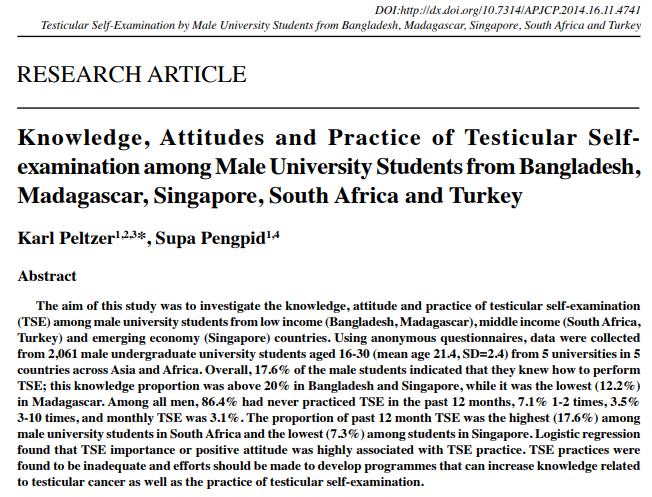Knowledge, Attitudes and Practice of Testicular Self-examination among Male University Students from Bangladesh, Madagascar, Singapore, South Africa and Turkey
The aim of this study was to investigate the knowledge, attitude and practice of testicular self-examination (TSE) among male university students from low income (Bangladesh, Madagascar), middle income (South Africa, Turkey) and emerging economy (Singapore) countries. Using anonymous questionnaires, data were collected from 2,061 male undergraduate university students aged 16-30 (mean age 21.4, SD=2.4) from 5 universities in 5 countries across Asia and Africa. Overall, 17.6% of the male students indicated that they knew how to perform TSE; this knowledge proportion was above 20% in Bangladesh and Singapore, while it was the lowest (12.2%) in Madagascar. Among all men, 86.4% had never practiced TSE in the past 12 months, 7.1% 1-2 times, 3.5% 3-10 times, and monthly TSE was 3.1%. The proportion of past 12 month TSE was the highest (17.6%) among male university students in South Africa and the lowest (7.3%) among students in Singapore. Logistic regression found that TSE importance or positive attitude was highly associated with TSE practice. TSE practices were found to be inadequate and efforts should be made to develop programmes that can increase knowledge related to testicular cancer as well as the practice of testicular self-examination.
Full text article available at:
http://journal.waocp.org/article_31155_96ca896a21830a0edeb90a681803cc43.pdf


